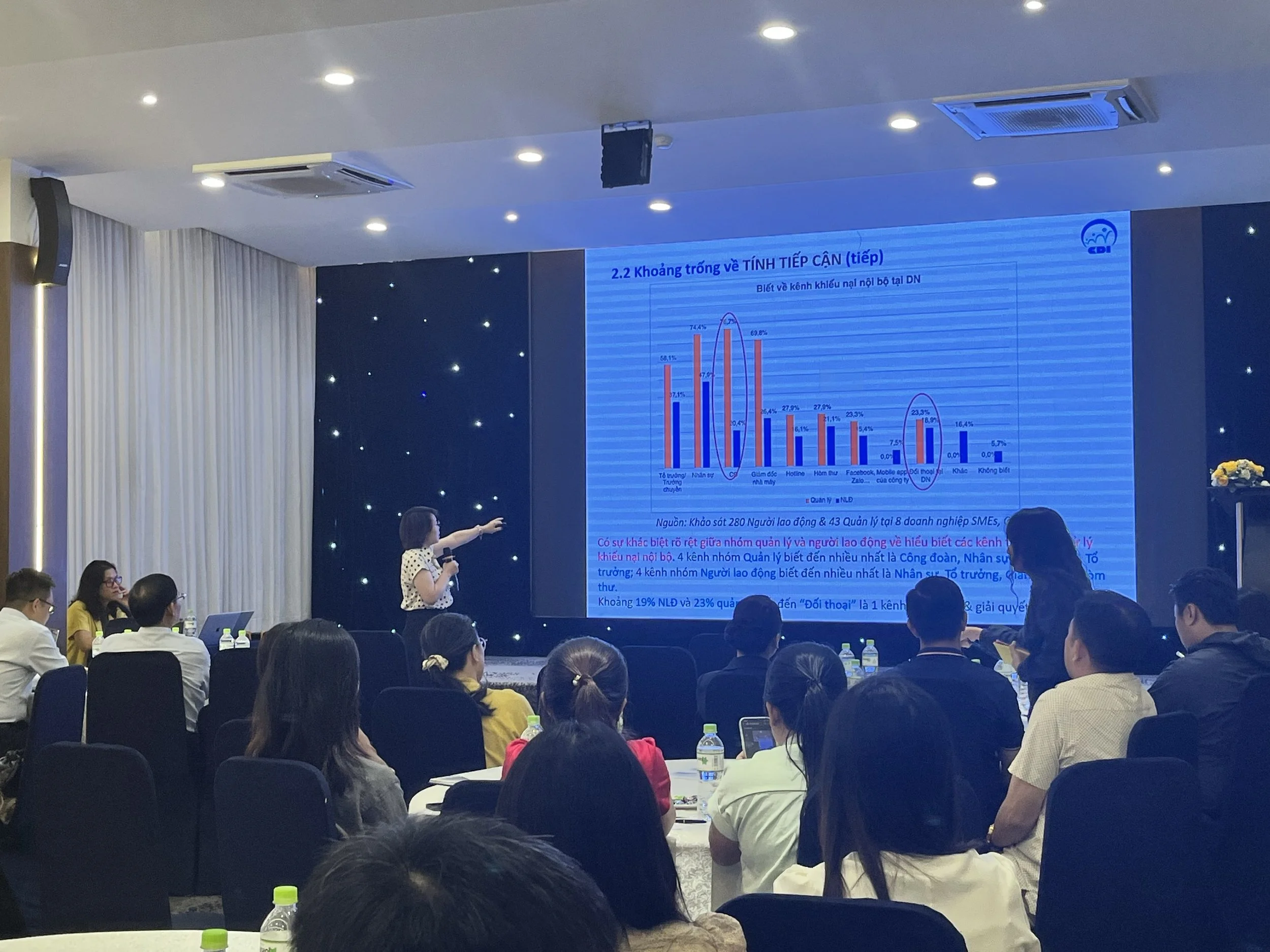Local Spotlight: Promoting human rights and sustainability due diligence in Vietnam’s garment sector
In this Local Spotlight series, we explore how STITCH and its partners are supporting meaningful change in production countries. This example from Vietnam illustrates raising awareness and building capacity on human rights due diligence (HRDD) and corporate sustainability due diligence (CSDD) — helping suppliers prepare for evolving global standards while improving conditions on the ground.
When STITCH began implementation in Vietnam in 2021, understanding of HRDD was still limited. At the same time, the European Union was preparing to shift from voluntary to binding due diligence requirements, a transition realised in June 2024 when the Corporate Sustainability Due Diligence Directive (CSDDD) officially came into effect. Against this backdrop, three STITCH partners—Fair Wear Foundation, CNV Internationaal, and CDI—came together to leverage their expertise and work closely with local stakeholders to raise awareness and build practical capacity within the garment sector.
A key partner in this effort has been VITAS (Vietnam Textile and Apparel Association), which represents nearly 200 member companies. Together with Fair Wear, CDI collaborated with VITAS to provide training sessions for its members, introducing updated information on the UN Guiding Principles on Business and Human Rights, the basics of HRDD and CSDD, and the differences between compliance-based CSR approaches and risk-based due diligence. These sessions also explored the step-by-step HRDD process, the role of stakeholders across the supply chain, and the potential benefits for businesses adopting HRDD practices. A strong emphasis was placed on multi-stakeholder engagement, which is essential for ensuring HRDD processes are effective and meaningful.
Following these introductory sessions, CDI and Fair Wear conducted in-depth training and hands-on coaching to help suppliers apply HRDD in practice. Factories were supported to identify existing and potential risks related to forced labour and discrimination and develop concrete action plans to address them.
Building on this foundation, CDI and Fair Wear worked with VITAS to organise three supplier seminars on effective social dialogue and strengthening internal grievance mechanisms — key steps in implementing HRDD. These seminars gave businesses a deeper understanding of workers’ perspectives on workplace dialogue and grievance channels, provided insights into relevant legal frameworks, and shared practical solutions for creating more meaningful and constructive dialogue between workers and management.
To further support enterprises, Fair Wear and CDI developed a practical assessment tool to help companies evaluate the effectiveness of their grievance handling mechanisms. Designed with input from participating businesses, the tool will continue to be refined to ensure it offers a realistic and comprehensive framework for assessing and improving grievance systems.
Alongside their collaboration with VITAS, CDI has extended similar training and coaching to several large garment corporations and partnered with local agencies responsible for integration training to deliver workshops on CSDD. These initiatives aim to prepare businesses for new due diligence requirements while strengthening protections for workers.
Through this collaborative approach, STITCH and its partners are helping suppliers across Vietnam’s garment sector move beyond compliance towards meaningful due diligence. By combining awareness-raising, practical training, and multi-stakeholder collaboration, this work is laying the groundwork for more responsible business practices, stronger worker protections, and supply chains built on transparency and respect for human rights.

